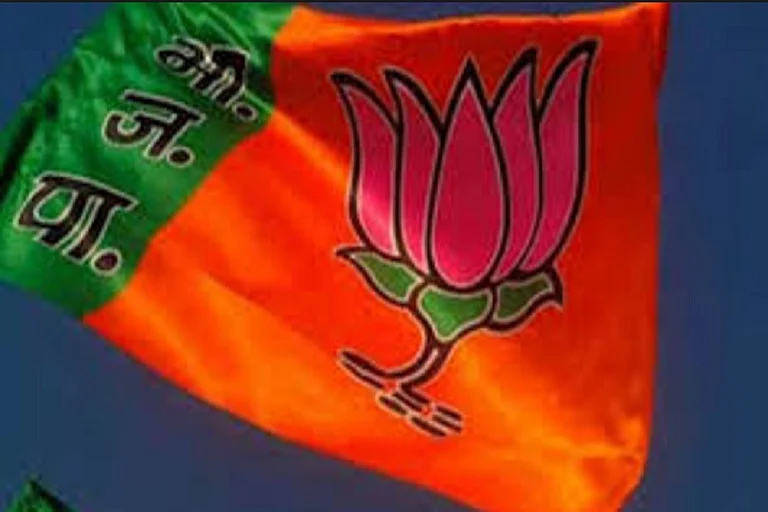As Nepal lurches from crisis to crisis, echoes of Hitler's successful campaign to destroy the Weimar Republic in Germany grow ever louder. Not a day passes without a new outrage by the'Brown Shirts' of the Young Communist League (YCL), or what Prime Minister Girija Prasad Koirala more correctly labeled the'Young Criminals League'. Unfortunately, the transitional state in Nepal has proved every bit as hapless as its post-World War I predecessor in Germany.
The result is a disastrous--and still deteriorating--security situation, enabled both by the presence of Maoist leadership figures in the interim regime and the holding of the keyhome ministry position (thus authority over the only presently active state armed capacity, the Police) by a figure variously labeled as either incompetent or a Maoist fellow-traveler, Krishna Prasad Sitaula.
In reality, Sitaula appears to be following faithfully the marching orders given to him by his Nepali Congress (NC) boss, Prime Minister Koirala. Koirala, hobbled by advanced age (85) and poor health, seems determined to press ahead with a'compromise' which has, as per critics, long since become an exercise in one hand clapping. Most seriously, the continued security deterioration, together with the inability or unwillingness of the state to provide even the most basic services (e.g., electricity and water), has unleashed a host of violently centripetal forces.
There are seven major separatist movements active, with those in the tarai, the southern and western parts of Nepal sharing a border with India, the most serious and powerful. Already, these tarai insurgents, comprised at least in part of breakaway Communist Party of Nepal-Maoist(CPN-M) factions, have proved more than willing to answer Maoist violence in kind. The state has compounded matters by both vacillating and engaging in deceptiveness in its dealings with representatives of these movements.
If the political situation is grim, the economic picture is worse. Though macro indicators are reasonably stable, the micro situation is such that, if anything, the conditions of unemployment and under-employment, which contributed powerfully to the Maoist ability to recruit manpower, have deteriorated. The Maoists have contributed to the deteriorating situation by engaging in violent labour mobilization, necessarily displacing unions already in place, then engaging in job-actions which betray a well-nigh complete lack of knowledge of fiscal realities.
Socially, centripetal forces have led to a demand from virtually all groups, whether of gender, sector, ethnicity, language, or locality, for inclusion in the new-order distribution of rights, resources, and privileges. The key omission, of course, is any consideration of obligations.
If there is one apparent bright spot, it is that--quite contrary to Maoist cant--there appears no sign of military desire to intervene in the political chaos. Under the old-order, the domination of the formal military chain-of-command by what effectively was a parallel Palace structure--a military secretariat--was noted by some analysts. But few were astute enough to grasp the degree to which this arrangement increasingly rankled. Numerous line officers became convinced that their interests would be better served in a more'modern' arrangement. Thus, contrary to expectations, there was no resistance to the transfer of command from the Palace to the Parliament.
Unfortunately, this transfer was done as clumsily and inefficiently as all others in the transition period. Koirala himself secured the Defence portfolio but failed to oversee the creation of mechanisms which could serve as a secretariat for implementing Nepal Army (NA) transformation. Though the Defence Secretary, Bishnu Dutta Uprety, was a holdover with some experience, he was not a security specialist but a line civil servant doing a tour of duty.
The new head of NA, General Rookmangud Katawal, though an experienced officer, finds himself overseeing an Army that is progressively being hollowed out by the inaction brought on byNA's being limited to garrison functions (with some engineer units involved in mine-clearing and road construction, the exception). The bottom line is that the worst military abuses of the old-order, especially a completely stove-piped chain-of-command have not only been carried over but actually exacerbated by the new-order.
The Maoist goal remains the sweeping away of the old-order and its replacement by a Radical new-order. The specifics as articulated, in speeches, the media, and CPN-M documents, are common to communist movements throughout South Asia, inspired as they remain by Stalinism, and feature a dreary litany of state intervention in all economic, social, and political facets of existence.
If their vague vision of a utopian future is to be carried out, the Maoists understand, they must have power. They claim they will gain it'peacefully'. But their understanding of the term 'peacefully' has been consistent and boils down to:'as long as we get what we want, we will not resort to violence; but when non-violence does not work, we will reconsider ourposition'. 'Non-violence', in the Maoist lexicon, means only that firearms are not used as the weapons of first resort. In particular, their constant use of menace and extremist threats, backed up by very real actions, such as abductions and near-fatal beatings, is denied--by both the Maoists and their apologists, including internationalfellow-travellers.
Yet the Maoists know just what they are doing. When taken to task by their Coordination Committee of Maoist Parties and Organisation of South Asia (CCOMPOSA) compatriots for having abandoned the revolutionary struggle, the CPN-M succeeded in placating its critics by setting forth a convincing case that it was only pursuing the struggle by other (but still'Maoist) means. By violently denying the Seven Party Alliance (SPA) access to the 70 per cent of that the country the Maoists still control, as well as using street gangs in urban areas, the CPN-M intends to dominate the Constituent Assembly elections projected for November 2007.
To be sure, Maoist calculations have been hobbled by the tarai upheaval, as well as the growing popular revulsion against YCL abuses. This reaction has increasingly resulted in vigilanté action, because the state is seen as failing in its most basic duty, the provision of security to the populace. The regular claims by Koirala that Maoist abuses will no longer be tolerated are belied by standing instructions that no police intervention can occur without direct authorization from the Home Minister--and he does not often issue such orders.
The trump card, as the Maoists see it, is threatening to bolt the government, to take to the streets, to launch a newpeople's war. Though they quickly clarify that they do not mean 'returning to thejungles', the threat is clear enough: pitched street battles.
The CPN-M, therefore, is simply pursuing its ends by other means in the same way--people's war. Its lines of operation have remained consistent. Only the choice of weapons has changed with time and circumstances. Coercion, persuasion, and inducement are of a piece.
Violence, thus, remains integral to the Maoist strategy for taking control. The only issue is the proper balance between'the ballot and the ArmaLite', as the Provisional Irish Republican Army (PIRA) pithily put it [referring to the small arms manufacturing unit that produced the infamous'Widowmaker' the AR-18, which was widely adopted by the IRA]. This, the Maoists--prisoners to a hackneyed, discredited, vicious ideology--have had trouble finding. As a result, the party hierarchy is no longer fully in charge.
Though the people's war shift to seizing power from within has been explained up and down the ranks, the CPN-M leadership did not anticipate the reversal of protracted war roles, with time beginning to favour the state. Not only are the Maoist ranks becoming increasingly restless (for what do they have to show for a decade of internal war?), but their own misbehavior has mobilized a powerful backlash so pronounced that all attempts at surveys point to a Maoist drubbing in a fair election. Of course, it is precisely a level playing field that the Maoists seek to thwart.
In only one other key area have their designs been denied: the integration of the PLA(People's Liberation Army) into the NA (Nepal Army). The military has been adamant that integration must be a process whereby individual volunteers are screened through the normal processes of induction. The Maoists, in contrast, want to see their units absorbed intact. This would be accompanied by demands for'democratization' of the military, by which the Maoists mean politicization: better'red' than 'professional'.
In sharp contrast, the essence of ongoing NA transformation is the movement towards a non-political Army responding to the dictates of a parliamentary system.
Here again the different conceptions of democracy collide. Koirala--and certainly General Katawal--sees the Maoists as having agreed to return to the fold, as defined by and structured as parliamentary democracy and the market economy.
The Maoists, however, see matters differently. In their calculus, they are accepting the surrender of the old-order. Their intention remains a revolutionary reordering of Nepal to form apeople's republic. In these plans, the 'old military' is to be cut back dramatically, and in its place are to be substituted armed popular groups as seen, for example, in Iran and increasingly Venezuela.
Hence what is occurring is a battle of mobilisation capabilities. Throughout the counterinsurgency, the Maoists had the advantage in this contest for the simplest of reasons: thegovernment did not recognize the game being played. To the contrary, all efforts by knowledgeable members of the state, especially within the security forces, to mobilize citizen capacity, whether in local defence forces or even watcher groups, were thwarted by incomprehension, outright opposition, or alliances made with the donor community.
In contrast, the entire thrust of the Maoist effort was to form a counter-state that could challenge the state. In this, they have never faltered. Their present participation in thegovernment is for no purpose other than to facilitate their eventual takeover. In their briefings to their followers, there could be no middle ground: one order must give way to the other.
Therein lies the challenge for the Nepali state. A tenuous old-order, held together as much by tradition as by structure, has seen its glue dissolve. And the effort to achieve a new-order contains a critical flaw, because a key player, the CPN-M, lacks sincerity. Assessments of what is to come should look to the Weimar example and examine carefully how Fascism emerged triumphant as a consequence of state weakness and individual cowardice when confronted by thugson the streets.
Thomas A. Marks is a political risk consultant in Honolulu, Hawaii























